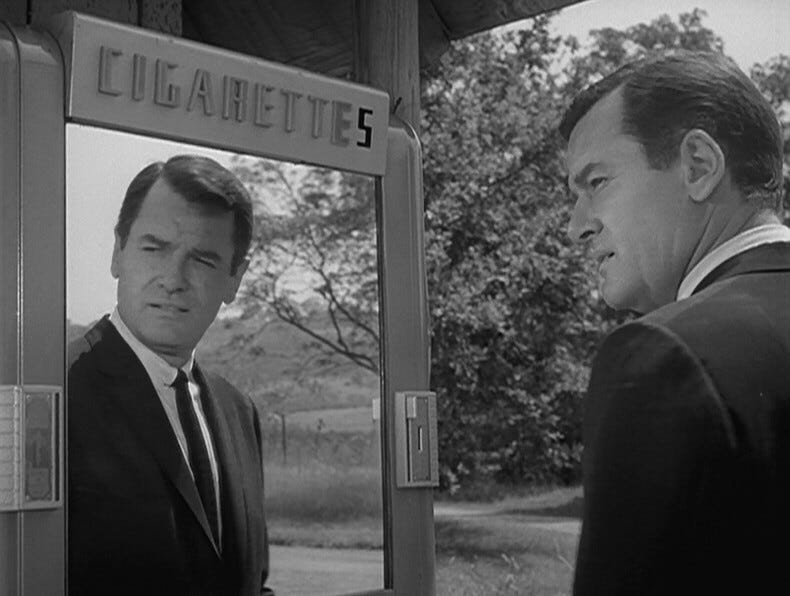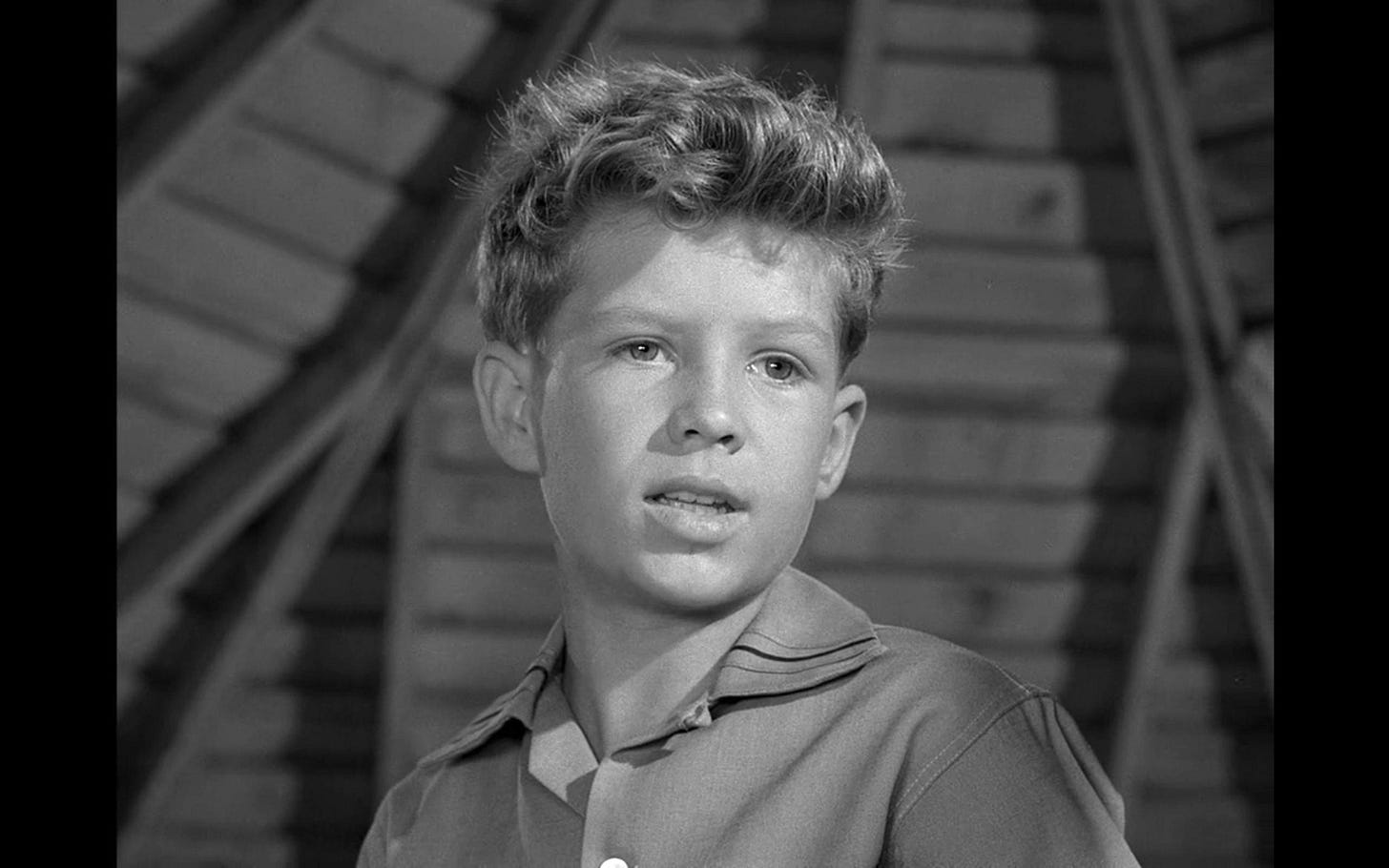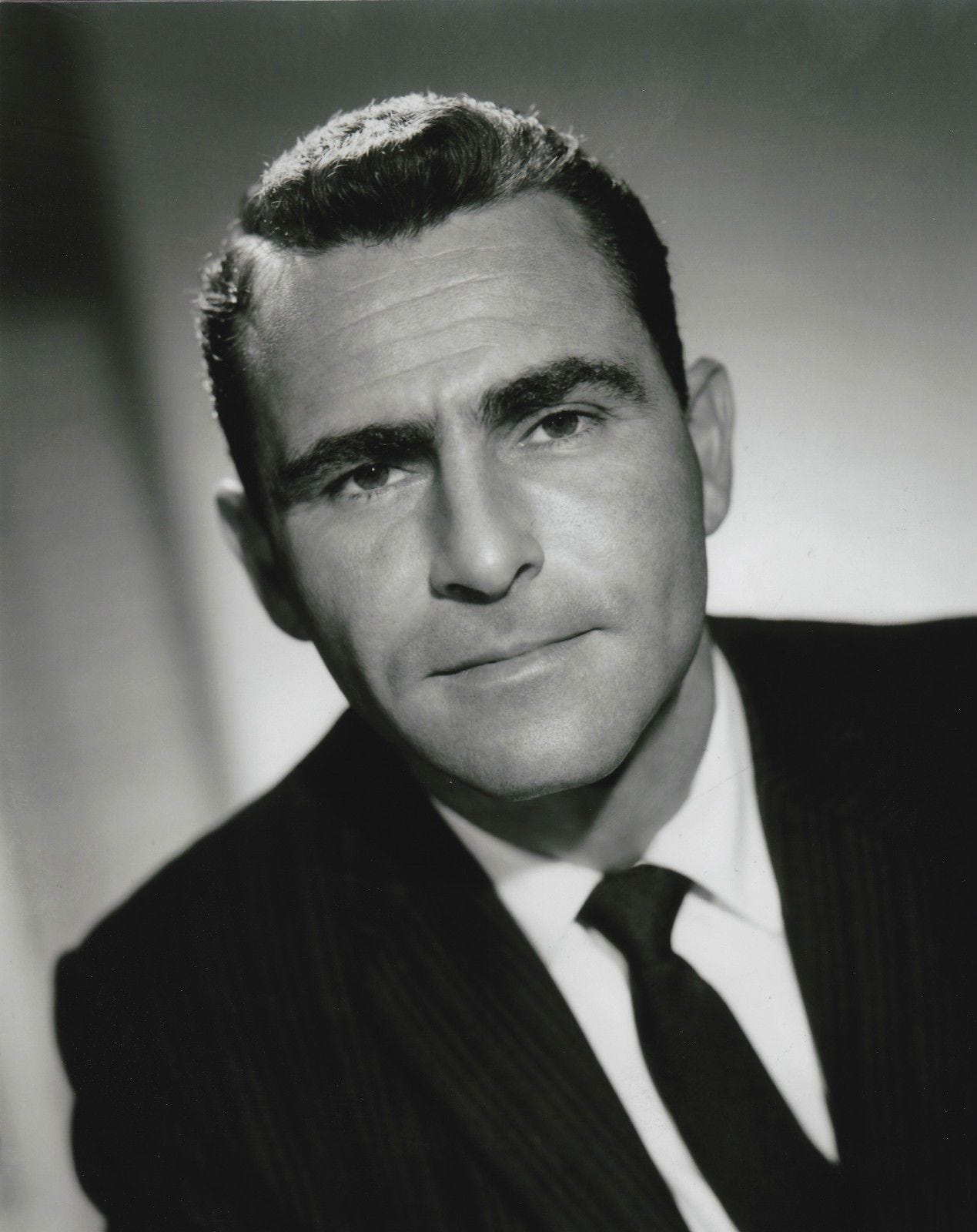A 1960s Anthology
Last year, I took an honors course about The Twilight Zone, a television show from the 1960s. When I tell people this, they are mostly confused as to why I took it and how it pertains to my degree. These questions are completely valid. How could a class like this help me in the real world?
I am so thankful that I was able to take a course on something unconventional and use it to grow my knowledge on things that are outside of my major and minors. It gave me the opportunity to learn from my peers, most of whom I would not have met or had the chance to hear from otherwise.
Not only this, but the main focus was using the episodes to understand historical events and relate them to current events. Because The Twilight zone is an anthology, every episode reflected some aspect of 1960s society from a first-person perspective. Many of the episodes had political undertones or outright activism that made the TV show unique and timeless.
Walking Distance: A Summary
My favorite episode of The Twilight Zone is “Walking Distance,” which can be streamed on Paramount Plus. I wrote and presented on this topic many times and I think of its message often. The best thing that this episode offers is the melancholic feeling of needing to rest; needing to go back and experience times when one was truly happy. This is the main theme of the episode. The restlessness that the main character experiences allows him to literally travel back in time to find meaning in the mundanity of his own timeline.
The story opens with a man, Martin Sloan, who drove out of New York City and ended up at a Service Station 1.5 miles away, or walking distance, from his hometown. The first place Martin visits after arriving is the Grocery Store, then the street where he used to live, and then The Park, each place indicating that he has traveled back in time to a perfect summer from his childhood.
Martin comes to this realization when he meets his ten-year-old self carving his name into a wooden beam on the Gazebo. Now knowing his situation, he hurries to his childhood home in search of answers, where he meets his parents. After failing to explain his situation, he is dismissed and called a “lunatic,” dropping his wallet in the process. The wallet includes bills and an ID with dates decades in the future.
He decides that he needs to impart wisdom with his childhood self. If he cannot reach his parents, then he must make his younger self understand how important this summer is for him.
He finds young Martin at the carousel where his younger self runs to escape during the ride. This causes young Martin to fall off and injure his leg.
Before young Martin is carried off, Martin pleads with his younger self saying that he shouldn’t “let any of it go by without enjoying it” because this is a “wonderful time of life.”
Afterward, Martin's father finds him in front of the carousel. Martin’s father shares that young Martin will live, although he will “limp” a little.
After going through his lost wallet, Martin’s father realizes that Martin is from the future. He advises Martin that he has been “looking behind” into the past, but he should “try looking ahead.” They share a knowing glance after the bonding moment and say goodbye.
Martin jumps on the clockwise spinning carousel, indicating that he can return to his own timeline. After a quick fade of the screen, Martin is sent back to 1959. Martin vaguely limps back to the Service Station, picks up his car, and drives away with his new lessons.
Time Travel Lessons
When Martin's father speaks to him after the carousel incident, he shares wisdom that only someone you look up to can provide. He is sympathetic, while also maintaining his authority. He shares that “there’s only one” perfect summer for each person and Martin should not make his younger self “share it.”
Even though Martin and his father appear to be the same age, the advice still makes him question his need to “come back” home. Martin is longing to feel whole again, like he was in this perfect summer of his childhood. This opportunity, regardless of the actuality of time travel, provided him with time to reflect on how his life was progressing in a mundane and unfulfilling manner.
Often being in a location that we have been in before puts us back in a former mindset and sense of self, regardless of if they were good or bad memories. Martin has fallen into the trap of trying to go back to a simpler time and a perfect summer. The physical representation in the episode of being in an old situation, while having new insight on that time in your life, shows a location’s foothold on memory. This is especially true in the case of “Walking Distance” because the main character literally travels back in time in order to reminisce and find meaning in his own timeline. The episode never explains why or how he got to the Service Station, only that he just had to get away. Martin was searching for something, even though he did not know what, and found it.
Reminiscing makes us rethink our actions by trying to rewrite the story. This act of changing the past is impossible and is demonstrated as a failure in various media. It is human nature to try and make things perfect, even though they never will be. All we can do is remember the situation and learn from it. We do not have a 1960’s television series to help us travel back in time; we only have our mistakes and the chance to change our actions in the future.
This episode describes the rat race that most of us find ourselves in. We are always searching for the next thing, instead of seeking the things that will fulfill us. Martin is the Vice President of an ad agency. He is removed and has detached himself from the simplicity of the past. When he is awarded the opportunity to learn from his past, Martin discovers that he will never be satisfied with his current situation. He needs to look ahead, while also taking guidance from the happiness and simplicity of the past.
This is exactly what I believe Martin sets out to do as he drives off after this reminiscent ordeal. This reflection is the only thing that will suffice the yearning for past experiences. We never get a second chance, and we cannot rewrite history. All we can do is do better in the future by taking the good parts with us and learning from the bad parts.
The Value of The Twilight Zone
There is something lacking in today’s media. Remakes never cast the same charm as the originals, and new shows are often forgettable. The current entertainment market is oversaturated, replacing quality with quantity. The Twilight Zone has inspired entertainment creators since its release. Its influence can be seen in everything from Family Guy to Black Mirror. Because of its uniqueness and popularity, The Twilight Zone was able to find its place in television history.
Many episodes of The Twilight Zone have a reflective nature. In many ways, episodes like “Walking Distance” can be used as a metaphor for the show as a whole. We can look at this form of media as a snapshot of the time period.
Along with strange and perilous situations, each episode has something to teach the audience, even if it is not apparent upon a first watch. Each episode leaves something with the viewer, ensuring that they are entranced by the episode well after watching.
The storytelling, acting, set design, and creative filming techniques all work together to pull the viewer in, making them believe that the situation is really happening to the characters, regardless of how far-fetched it is. As The Twilight Zone moves further into history, it still continues to have an affinity for staying with the times. Through its adaptations, constant switches between streaming platforms, and after more than sixty-two years since its premiere, there are still aspects of The Twilight Zone that inspire and stick with viewers both old and new. When it comes to longevity, there is one thing for certain, The Twilight Zone will continue to enchant, ensnare, and entertain its audience for years to come.
References:
https://en.wikipedia.org/wiki/The_Twilight_Zone
https://www.paramountplus.com/shows/the-twilight-zone-classic/
Zicree, Marc. The Twilight Zone Companion. Silman-James Press, 2017.





